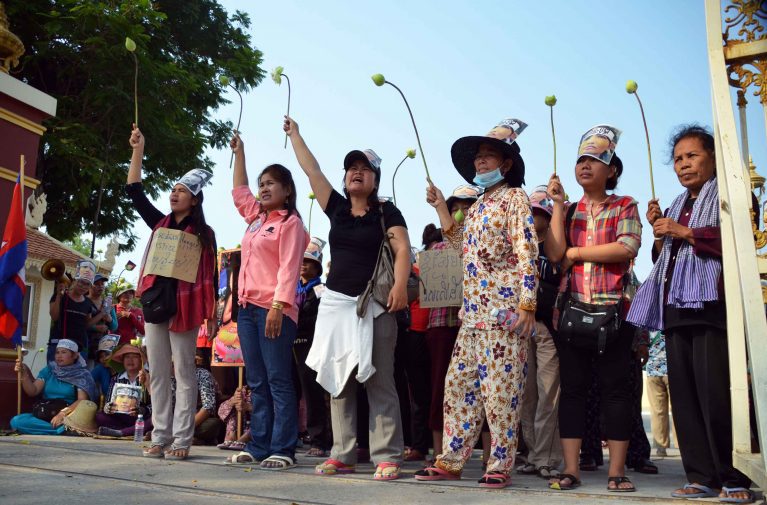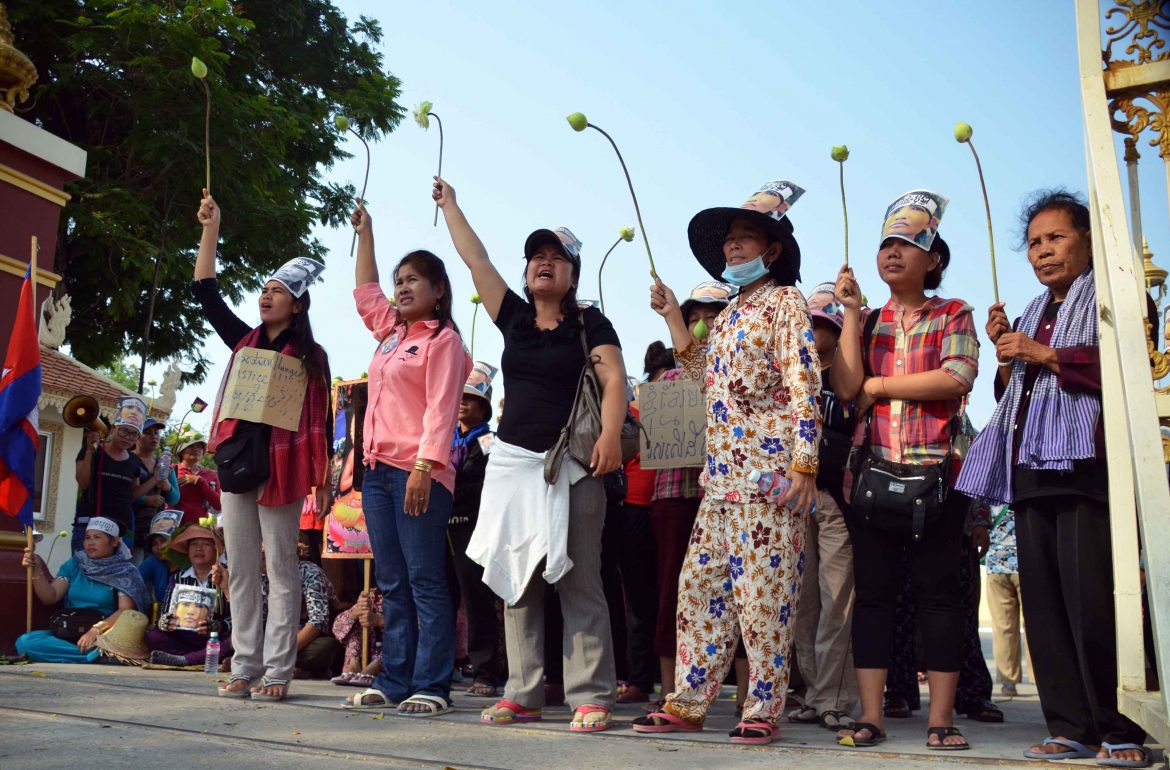In prison for a Facebook post
In Asia, the erosion of democratic spaces complicates the struggle for labour rights, as illustrated by the story of Soy Sros, who was arrested in Cambodia for posting on Facebook.
On 2 April 2020, Cambodian police arrested Soy Sros, a single mother of two and a trade union activist who worked at the Superl Ltd. handbag factory, which supplies several luxury brands. On 31 March, she had protested on Facebook against the company’s redundancy plan, which targeted more than 80 workers, including a pregnant woman. The events occurred as the effects of Covid-19 were being felt around the world and supply chains to the textile industry were disrupted. The Cambodian government ordered that the workers should not be dismissed but employed at greatly reduced wages. Superl Ltd. nevertheless continued with its mass dismissal. A day after the criticism was published on Facebook, the employer forced Soy Sros to delete her post and even tried to force her to sign a statement that she “published an untruth and intends to express her regrets”, which she refused to do. The next day she was arrested for “inciting social unrest, defaming the company and spreading an untruth”. “The police asked me if I wanted to become famous. They insulted me and violated my dignity as a woman,” she later told BuzzFeed News.
In Cambodia, protesting or posting on Facebook can lead to arrest.
Protest as a criminal act
Solidar’s local partner organisations are also exposed in their daily work to repressive measures and increased surveillance by the authorities. Many of them find it difficult to obtain or keep their legal registration, as they are subject to excessive red tape. Moreover, every protest can be interpreted as a “criminal act”. Despite the repression, our partners are still finding innovative ways to do their work.
In Malaysia, for example, the government reacted with great sensitivity to the report on the abuse of migrant workers. Because of a critical report, the police even raided the offices of Al Jazeera, arresting journalists. After conducting a detailed investigation into the abuses of migrant workers, they published it under the collective name of the “Coalition of Migrant Workers” to protect their identity. The coalition then turned to the Indonesian (i.e. the workers’ home country) Human Rights Commission, which conducted further research. The report was published in Indonesia and sent to the Malaysian Human Rights Commission.
Freedom of expression and assembly remains the key to enabling marginalised groups to organise to defend their interests and secure ‘dignified work’ for all. The increasing shrinkage of democratic spaces around the world threatens this commitment. This is why the support of Solidar Switzerland is so important in the international network. In the case of Soy Sros, for example, an international campaign led to her release on 28 May. The charges against her were also dropped.

